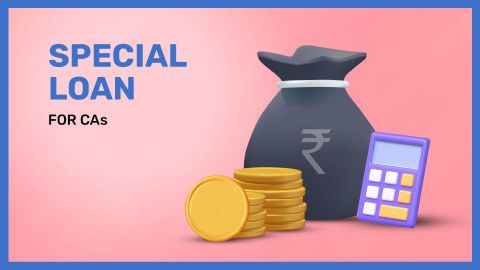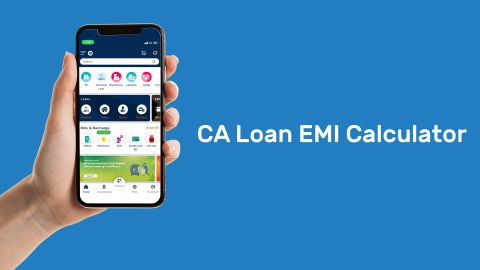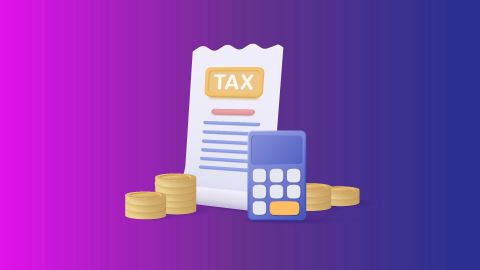Are you intrigued by the world of finance and numbers? If so, a career as a Fund Accountant might be your calling. Fund Accountants play a vital role in managing and reporting the financial performance of investment funds. This profession combines analytical skills with meticulous attention to detail, ensuring that investors and stakeholders receive accurate and transparent financial data.
As businesses grow, the demand for skilled Fund Accountants continues to rise. From ensuring compliance with financial regulations to preparing detailed reports, the job offers diverse challenges and rewards. Whether you’re just starting your career or seeking a shift in the finance industry, this article will guide you through everything you need to know about Fund Accountants—what they do, the skills required, and how you can become one. Also, explore financial solutions like Bajaj Finserv Chartered Accountant Loan to fuel your professional aspirations.
Who is a Fund Accountant?
A Fund Accountant is a finance professional responsible for maintaining accurate financial records and ensuring compliance for investment funds. Their primary role involves calculating the net asset value (NAV) of funds and preparing financial statements. Fund Accountants work closely with fund managers, auditors, and regulators.
Key aspects of the role:
- Preparing and reconciling financial statements for investment funds.
- Calculating the NAV to evaluate fund performance.
- Ensuring compliance with regulatory frameworks.
- Collaborating with stakeholders to provide financial insights.
- Handling fund-related audits and ensuring transparency.
Responsibilities of a Fund Accountant
Fund Accountants manage various tasks critical to the financial health of investment funds. Here are the primary responsibilities:
- Financial Reporting: Prepare detailed reports for stakeholders, including balance sheets and income statements.
- NAV Calculation: Ensure accurate net asset value calculation, reflecting fund performance.
- Regulatory Compliance: Maintain adherence to local and international financial regulations.
- Audit Coordination: Work with auditors to streamline fund audits.
- Transaction Processing: Record and monitor transactions, ensuring accuracy.
- Error Detection: Identify and rectify discrepancies in fund operations.
Skills and qualifications needed to become a Fund Accountant
To excel as a Fund Accountant, a combination of technical knowledge and soft skills is essential. Here’s what you need:
Skills:
- Analytical Skills: Ability to interpret financial data accurately.
- Attention to Detail: Precision in calculations and reporting.
- Technical Proficiency: Knowledge of accounting software and tools.
- Communication: Clear and concise reporting to stakeholders.
- Problem-solving: Address financial discrepancies effectively.
Qualifications:
- A bachelor’s degree in accounting, finance, or related fields.
- Professional certifications like CPA, ACCA, or CA.
- Proficiency in regulatory frameworks like IFRS or GAAP.
- Experience in fund accounting or related roles.
Benefits and challenges of being a fund accountant
A career as a fund accountant comes with several benefits and challenges, offering a mix of professional growth and demanding responsibilities. Here’s a closer look:
Benefits:
- Career Growth: Fund accountants are in high demand, making this role an excellent choice for those seeking a stable and upward career trajectory in finance.
- Competitive Salary: Professionals in this field enjoy lucrative pay packages and additional perks, reflecting the critical nature of their work.
- Global Opportunities: Fund accountants often work with multinational firms, opening doors to international exposure and diverse professional experiences.
- Dynamic Work Environment: The role provides exposure to a wide range of financial tasks, ensuring a challenging and stimulating work life.
Challenges:
- High Accountability: Fund accountants are responsible for maintaining accurate financial records and reporting, which requires precision and integrity.
- Time Sensitivity: Meeting strict deadlines can be stressful, especially when handling large volumes of financial data.
- Regulatory Complexity: Keeping up with constantly evolving financial regulations and compliance requirements demands continuous learning and adaptability.
- While the profession offers significant rewards, it also requires dedication and resilience to navigate its challenges successfully. Balancing these aspects is key to thriving as a fund accountant.
How to become a Fund Accountant
Follow these steps to become a Fund Accountant:
Step 1: Educational qualification
Earn a bachelor’s degree in finance, accounting, or a related discipline.
Step 2: Gain experience
Start with internships or entry-level roles in finance to build practical knowledge.
Step 3: Professional certifications
Enhance your profile with credentials like CPA, CA, or CFA.
Step 4: Develop technical skills
Get proficient in accounting software and stay informed about financial regulations.
Step 5: Networking
Engage with industry professionals to discover job opportunities and advance your career.
Investing in tools like Bajaj Finserv Chartered Accountant Loan can support your educational and professional development.
Is becoming a fund accountant challenging?
Becoming a fund accountant involves a strong educational foundation and relevant professional experience. A bachelor's degree in accounting or finance is typically required, along with hands-on experience in the accounting field. Some employers may prefer candidates with advanced qualifications such as a Master’s in Business Administration (MBA) or a Certified Public Accountant (CPA) certification. While the role can be demanding due to the competitive landscape and rigorous standards, it offers significant rewards making it an excellent career choice for those passionate about finance and accounting.
Professional growth opportunities for fund accountants
Here are some professional growth opportunities for fund accountants:
Advanced certifications: Earning credentials like CPA, CFA, or CA can open doors to senior roles and specialised areas in fund management.
Career progression: Fund accountants can move up to positions such as senior fund accountant, fund controller, or finance manager.
Transition to investment roles: With experience, professionals can shift into portfolio analysis, investment management, or asset valuation.
Global opportunities: Experience with international funds and regulations can lead to roles in global financial centres.
Technology specialisation: Gaining expertise in financial software and automation tools can lead to roles in FinTech or systems implementation.
Cross-functional exposure: Working with legal, compliance, and audit teams provides broader insights and prepares candidates for leadership roles.
Conclusion
Becoming a Fund Accountant offers an exciting and rewarding career path for finance enthusiasts. From mastering financial reporting to ensuring compliance, the role is integral to the investment industry. If you’re ready to embark on this journey, focus on gaining the right skills, qualifications, and experience. For aspiring Chartered Accountants, financial solutions like a CA loan from Bajaj Finance can help you achieve your goals. When planning finances one should also consider the prevailing CA loan interest rate to make informed borrowing decisions. Before applying, it’s essential to understand the documentation and criteria involved. Reviewing the CA loan eligibility can give you clarity on the requirements and improve your chances of approval.




